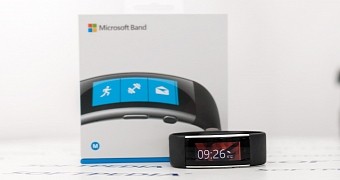Apple Watch is currently the world’s number one smartwatch, and all the statistics that market research firms roll out regularly indicate a never-ending growth that’s even further fueled by new-generation models.
Truth be told, Apple Watch leading the smartwatch industry in such a dominant manner isn’t just the result of the device being an advanced piece of technology, but also a consequence of other manufacturers not coming out with a competitive product.
As I said not a long time ago, a potential Apple Watch for Android would pretty much make Apple the king of the world in this business, especially because the options in the wearOS ecosystem are very limited and the ones that can be considered worthy alternatives to the Apple Watch are let down by the platform itself.
In other words, Apple is pretty much all alone in this race for leading the smartwatch business, as all its potential rivals are so far behind accounting for only just a small share of the sales recorded by the entire industry.
One name that’s not involved in the smartwatch party but which could have been a top Apple rival is none other than Microsoft.
Back in October 2014, Microsoft rolled out one very ambitious project that was supposed to provide users with a convenient method to track their activity, but also access apps and notifications from their wrists. Microsoft Band was more successful than Microsoft itself anticipated, so after launching it in limited numbers, the software company decided to ramp up production and bring more units to the market.
The second generation improved the design of its predecessor and added new features, serving as confirmation that Microsoft was ready to bet big on wearables. Unfortunately, however, the strategy changed overnight, and Microsoft eventually abandoned the entire Microsoft Band lineup despite the fact that a third generation made the rounds on several occasions. At this point, Microsoft Band is just history, and so is Microsoft’s name in the smartwatch world.
So why should Microsoft launch a smartwatch to compete against the Apple Watch? As I see it, there are two big reasons for this.
First and foremost, the company has everything it takes to build such a product. Microsoft Band is living proof that Microsoft has the know-how to make a smartwatch happen, and this involves not only the hardware, but also the software to power it.
Developing a platform to serve as the foundation of a Microsoft smartwatch shouldn’t be too much of a trouble, albeit it does mean that Microsoft would have to step out of its comfort zone and create a new iteration of a product that previously failed.
Apps shouldn’t be a concern because most smartwatch users stick with the default offering anyway. And at this point, Microsoft already has a very rich collection of apps that can be optimized for such a smartwatch, making it a fully-featured first-party product that doesn’t necessarily require an app store.
And then, a smartwatch compatible with Android and iOS perfectly aligns with Microsoft’s strategy moving forward. Without Windows phones, Microsoft decided to go all-in on these two mobile platforms, so the company brought its full portfolio of apps to these two OSes, once again doing what it knows best: developing software.
A device that would accompany these apps seems to be a natural thing to do, albeit once again, this means Microsoft would have to move from software to hardware.
At the end of the day, a Microsoft-branded smartwatch can be something that everyone would benefit from.
First, it’s the software giant itself because it can expand even more in the hardware business, generate profits, and conquer mobile without having its own operating system.
Then, it’s the customer, who would finally have a worthy Apple Watch alternative that would be fully integrated with Windows, but still work with Android phones and iPhones.
And last, it’s Apple, who’d finally have some serious competition, a concept that can help everyone involved in this business push harder for innovations.
Microsoft just seems to have all the reasons in the world to develop a smartwatch. But still, this doesn’t happen, and the culprit is a trio that so may consumers hate these days.
Cloud. Enterprise. Money.

 14 DAY TRIAL //
14 DAY TRIAL //